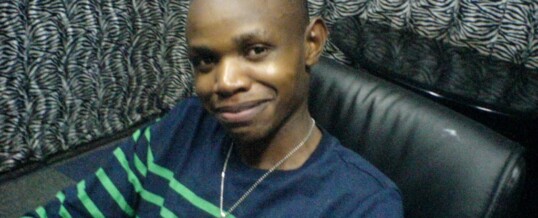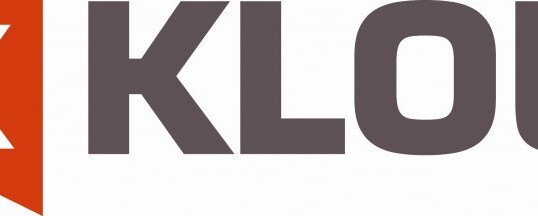I liked this piece from Mr. Larry Mogelonsky, CHA on HotelInteractive. This is how Larry says hotels irritate their Guests. Underneath each point I’ve written how I think we fare at Chanters Lodge.
1. Overpriced minibar and bottled water.
Why exactly is an in-room bottle of water $5? Every traveler knows this is shamefully marked up. It’s perceived as an aggressive cash grab for the hotel; you’re not winning your guests over with this exorbitant price. In fact, you’re insulting their intelligence. Ditto for the minibar.
Our bottled water is the equivalent of US$1
2. Weak in-room coffee and tea selection.
It’s always highly assuring and soothing to know that there’s a warm cup of stimulating beverage waiting for you across the bed, except when that beverage tastes like watered down battery acid. So I try to alleviate this insipid rot with cream and sugar, only to my dismay, there’s only one of the former and none of the latter. A little extreme, yes, but consider your coffee accessory allotment for when you’re dealing with more than one person per room.
We provide a kettle. We supply milk, sugar, tea and instant coffee on request with no limit on quantities. Our instant coffee is not of the highest standard………
2. Charging for local calls.
Why are you billing guests a full dollar per five minutes for each completed local call? Anyone who has ever owned a phone, landline or cellular, knows that local calls never amount to such incredulous fees. When you do this, the guest perception is one of hostility. You’re not doing your part to develop the friendship and positive emotional connection between the hotel and its patrons, which is an essential if you ever want such a guest to give you an actual recommendation.
We do not have much demand for local land line local calls but when there is, we do not charge.
3. Housekeeping knocks too early.
When is the earliest time that housekeeping should start making their rounds? How does this vary for weekdays versus weekends? Every traveler has a different routine and itinerary, so this is a tough call, but keep in mind that knocking too early and disturbing someone’s sleep is an instant deal breaker. I remember staying at a budget chain hotel where housekeeping knocked at 8am on a Saturday. And then, after I muffled out a half-reply, they proceeded to enter my room! Not only will I never stay there again, but I’ve been very vocal to advise my friends never to stay at this particular chain. Don’t let this be you!
We do not disturb guests in the room unless they have not appeared for breakfast before 10.00 hrs on departure day. On the whole the lodge is quiet, though there is noise from neighbourhood dogs at night – common in Africa. We have no time limit on the availability of breakfast, which is included in the room rate.
4. Not enough bathroom amenities.
Towels, soaps and shampoos primarily. Picture this: you are staying in a room with your significant other, getting ready for the day’s events, and he or she decides to shower first. Then you shower. Upon getting out, you notice that all the towels have been used. So now, drenched and sparsely clothed, you have to await housekeeping to deliver more of what should have been there in the first place. Not a good way to start your day.
We do not provide as many bathroom amenities as we should, mainly due to the absence of a reliable local supplier. We are happy to provide extra towels on request, as well as for the swimming pool.
5. Not enough pillows or coat hangers.
Some people are used to sleeping on one pillow, others two, and some even three. Is appeasing the latter two groups really that hard to do? True, a guest can always call down to request more pillows, but why start off on the wrong foot? Furthermore, too often I’ve entered rooms that only have five coat hangers or less. When this happens, I think to myself, “Do they really not trust me?” Apart from the obvious inconvenience of having to jockey for coat hanger real estate, this is just one more pesky, little thing to drive a wedge in an otherwise positive guest-hotel relationship.
Most travellers to Victoria Falls do not have a huge demand for coat hangers as clothing is strictly casual. We provide extra pillows on request. As Sod’s Law would have it we had a complaint about pillows as this blog was being prepared!
6. Noisy air conditioner or heating unit.
Less a problem during the day, but if your guest is a light sleeper and this stops him or her from getting a full night’s sleep, you’re in for big problems. Without their seven hours, your guests will be put in irrational states of mind and they’re bound to do anything, including actions like loudly complaining at the front desk, writing derisive online reviews and making it their mission to tell all their friends about their experience. Mind you, this one is substantially more expensive to fix and it requires a total maintenance overhaul, but that doesn’t preclude its importance. You’re going to have to upgrade these units eventually, why not know?
Our split unit air conditioners are generally quiet.
7. Too many promotional tent cards.
Once a guest is in the room, you don’t need to beat them over the head with endless advertisements for your own F&B or spa programs. The worst I’ve seen is when these cards and papers clog up the counters so much that it prevents a guest from using them. A polite, concise reminder will do. The guest is already staying with you, right? This is one area where tablets will shine as they can get these types of messages across neatly and colorfully without cluttering the room.
We don’t do these.
9. Charging for WiFi.
In-room internet connectivity is no longer a value-added service. Wake up; it’s 2012. For many people, internet access is an essential part of their way of life, much like breathing, sleeping, eating and hydrating. Charging for this service is highway robbery and guests won’t see it any other way. Whatever objections you have – legacy contracts or bandwidth overload for instance – get over them and think like a guest for a minute. Nowadays, why would I pay $15 per day to use the hotel’s internet when I could run down to a nearby cellular store and get 200 MB of data for $2 per day on my 4G smartphone, which downloads at a rate that’s at par with the hotel’s service?
Our wifi is free, it needs a booster to reach all and not just some of the rooms.
10. Worse – no WiFi at all!
Let me reiterate: Internet access is a necessity for the modern traveler. Your guests will treat the room as their ‘home base’ – planning the next day, answering emails, posting to social media and unwinding with a quick Netflix television episode. For some, denying them internet access is equivalent of denying them running water! It’s a given that travelers will research their accommodations before booking and lack of WiFi, free or not, is an instant deal breaker. If you operate at a hotel that doesn’t offer internet access, you’re not likely to receive any complaints about this, because every discerning guest has already booked and stayed elsewhere.
We were one one of the first small lodges in Livingstone to have wifi. We wish our provider’s speeds were better.
7
JAN



















